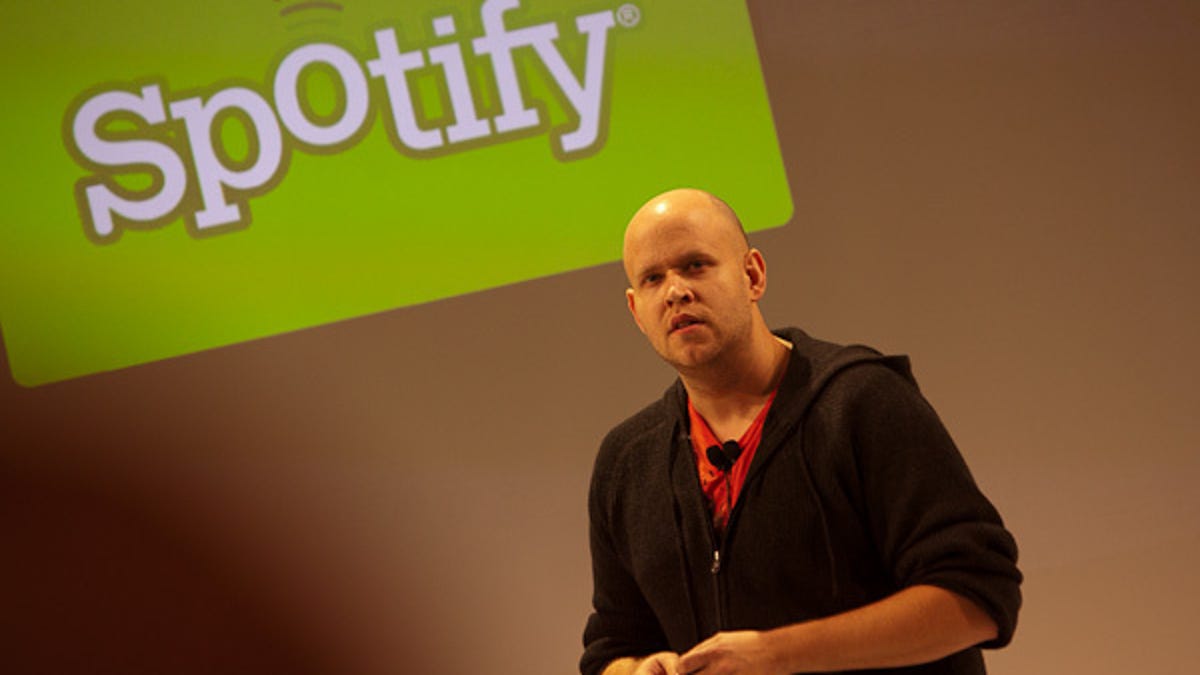Maybe there's hope for the music industry yet
A pair of reports today showed that revenue is edging up -- and piracy is slipping.

The big digital music companies, from Internet radio company Pandora to fast-growing startups like Spotify and Deezer, face huge business challenges because of the simple fact that the majority of the money they bring in -- either from ads or subscriptions -- goes to the big music labels and publishers.
And that's starting to look pretty good for the long suffering music industry.
A pair of reports published today on the music industry -- one from the International Federation of the Phonographic Industry, the other from research firm NPD -- highlighted the first glimmer of good news that the music biz has seen in a long time.
First, IFPI said that global recorded music industry revenue edged up by 0.3 percent to $16.5 billion in 2012, marking the first year of industry growth since 1999. Granted, that's not a big jump up -- but the first since 1999? Not bad. Meantime, digital revenue saw accelerating growth for the second year running, up 9 percent, as all formats -- downloads, subscriptions, and ad-supported businesses -- are on the rise. In other words, it's not just about iTunes anymore.
Second, as CNET reported earlier, piracy is falling -- the result, the studies conclude, of both legal attacks on sites like the once-popular LimeWire, and a rise of easy-to-use services such as Spotify, which let people listen to music for free if they're willing to put up with a few ads. Last year, according to NDP, the number of consumers using peer-to-peer services to download music dropped 17 percent compared with the prior year.
All the data points around piracy have to sound good to the industry. The report found that P2P file sharing peaked in 2005, when one in five Internet users older than 13 -- around 33 million people -- downloaded music via services such as LimeWire. Last year, that number fell to 11 percent, or 21 million people. In addition, there was a 26 percent drop in the volume of music downloaded from P2P sites, and a 25 percent decrease in the number of files swapped from hard drives.
At long last, it seems, the combination of improved services and a plentiful selection of legal music is pushing consumers to go the legal route. Frances Moore, chief executive of IFPI, said in a statement.
It is hard to remember a year for the recording industry that has begun with such a palpable buzz in the air. These are hard-won successes for an industry that has innovated, battled, and transformed itself over a decade. They show how the music industry has adapted to the Internet world, learned how to meet the needs of consumers and monetized the digital marketplace.
That's surprising talk from the industry perhaps hardest hit by the rise of the Internet. (You can check out the full IFPI Digital Music report here, in PDF form. The question that still looms, however, is whether Spotify and others can become thriving, standalone businesses. So far, that's proven a stadium-size challenge for digital music startups.

